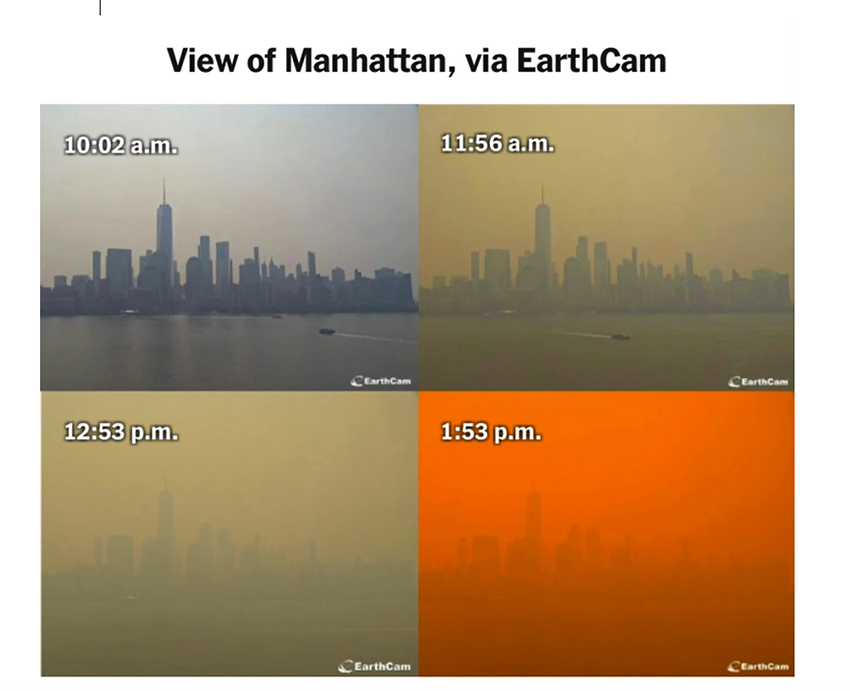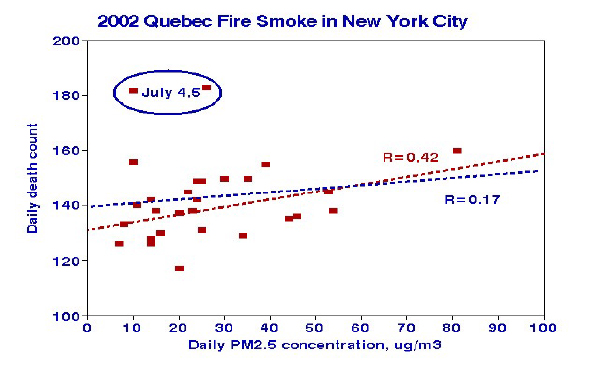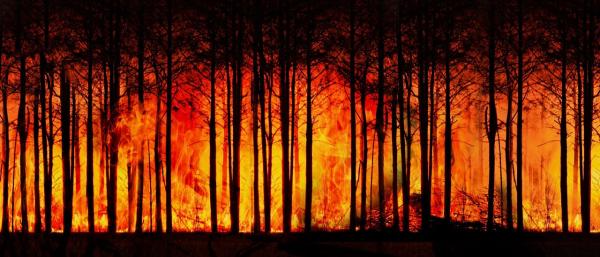The outdoor air is unpleasant, but we don’t need health warnings to prefer staying indoors. The health effects of daily variations in air quality have been studied in great detail for decades, especially in New York City. It is crucial to account for the duration of exposure. The oft-quoted figure of 8 million premature deaths associated with worldwide air pollution is based on long-term (years) but unstated exposures, confabulated by the effects of smoking and cooking with solid fuels. By contrast, the effects of several days of bad air have been estimated at a few percentage points, with important caveats:
- Day of the week matters. People may be outside more often on weekends, but weekend deaths are not always reported promptly. This also applies to holidays.
- Timing matters. Acute health effects tend to lag exposures by several days.
- Age matters. Acute responses have been limited to seniors (ages 65+).
- Prior health status matters. My peer review and published studies show that acute responses are limited to previously frail individuals.
- Sequellae matter. When the frailest members of a group are removed (sometimes referred to as “harvesting”), the mean survival of the remainder may be enhanced.
- There may be more than one pollutant involved, some toxic, others not so much.
 A Previous Episode
A Previous Episode
This is not the first time New Yorkers have sniffed Quebec fire smoke. There was a similar episode in July 2002, for which no significant effects were reported. I cross-plotted their data to display dose-response characteristics,  and it is apparent that July 4th and 5th are outliers with unduly high mortality counts. The published report included those days and concluded that there was no overall relationship. I excluded them as a sensitivity study and found a more robust and significant relationship. As a practical matter, both estimates are weak, with mean effects of a few percentage points, similar to what other daily mortality studies have reported. Such a brief study would not be expected to find these typically small effects, and it did not consider lags, days of the week, weather effects, or other pollutants.
and it is apparent that July 4th and 5th are outliers with unduly high mortality counts. The published report included those days and concluded that there was no overall relationship. I excluded them as a sensitivity study and found a more robust and significant relationship. As a practical matter, both estimates are weak, with mean effects of a few percentage points, similar to what other daily mortality studies have reported. Such a brief study would not be expected to find these typically small effects, and it did not consider lags, days of the week, weather effects, or other pollutants.
Bottom line
New York City air quality has been worse this month than in the 2002 episode, and it is possible that significant health effects may be found when all the data are in and rigorous analyses are completed. Healthy people should have nothing to worry about based on the many prior studies of acute air pollution effects and the physiology involved. Severely frail individuals should avoid outdoor exposure and indoor air pollution as well.



